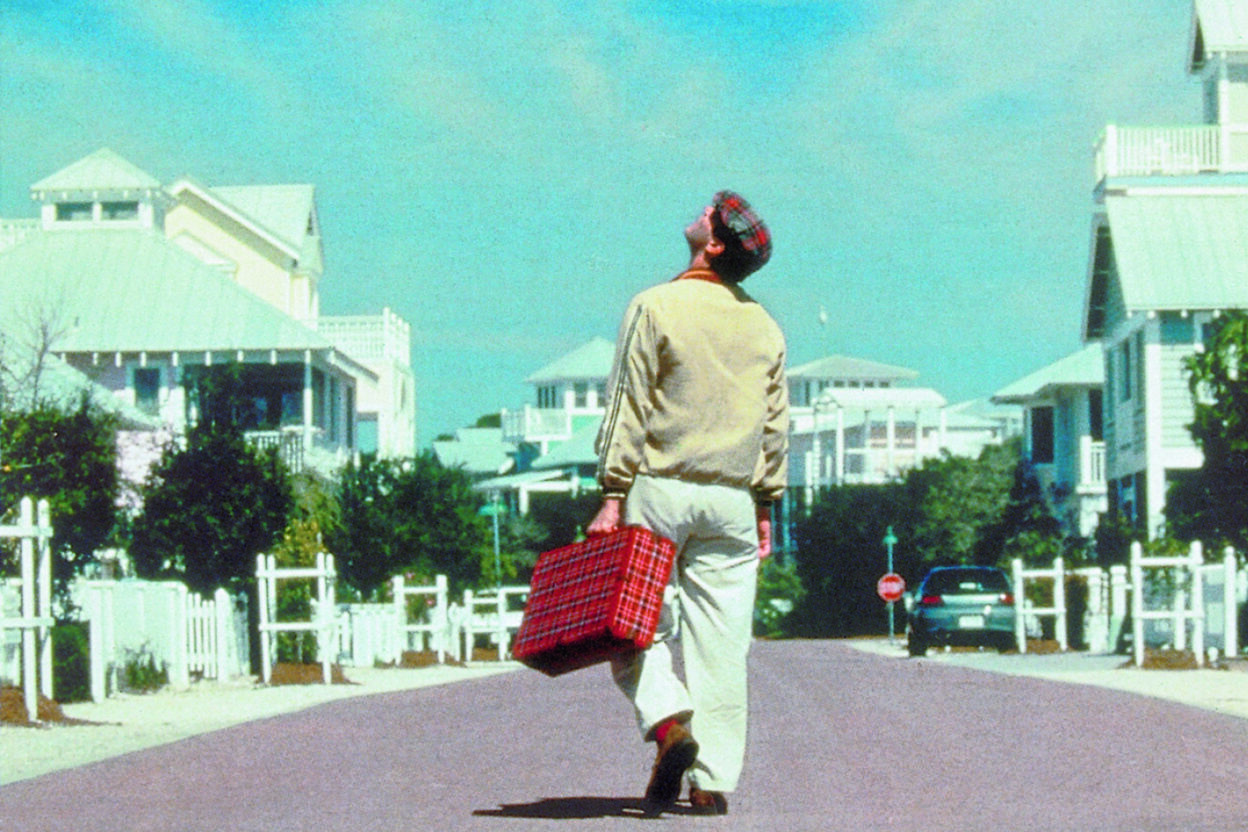Seminar S2 JMA-BE
Living for a Better World
— Explorations of Utopian and Experimental Habitats
 Film still, « The Trueman Show » by Peter Weir, 1998
Film still, « The Trueman Show » by Peter Weir, 1998CONTENT
The way we live together is strongly influenced by social, historical, economic ecological or ideological preferences. Such motivations determine not only the form and materiality of human habitat, but the way our built environment is imagined, constructed and inhabited. Not surprisingly, housing repeatedly became the means through which the transformation of society – and by extension, the world – is envisioned and driven. In order to address contemporary social and ecological challenges, architects need to better understand the interplay of such value-charged motivations and the production of the built environment. To do so, students investigate experimental and utopian housing projects and residential communities from the French Revolution to the present day across diverse geographies. Local examples will be visited on site.
TEACHING AIMS
The seminar offers insights into the social and architectural history of housing and housing utopias. How has social change, including its technological, economical dimensions, shaped the way we live and house ourselves? And how do housing conditions influence social development? How did our current ideas of living arise and what factors will shape our future ideas of living and aspirational habitats? What contributions can the responsible design of human habitat offer in order to tackle contemporary social and ecological challenges? The seminar raises awareness of the diversity of historical, current and future forms of housing as well as the historical and geographical context in which utopian and experimental living spaces are designed and built. Students develop a critical perspective on the way we encounter, design and inhabit our built environment.
TEACHING FORMS
The seminar includes lectures on the history and sociology of housing. Students will examine one historical and one current example of an experimental or utopian form of housing. Local examples will be visited individually by the students. If possible, interviews with residents and initiators of the projects are conducted, via video conference. Based on these interviews, the students develop and negotiate their own theses and manifestos for our future habitat. The research, theses and manifestos are made accessible online.

